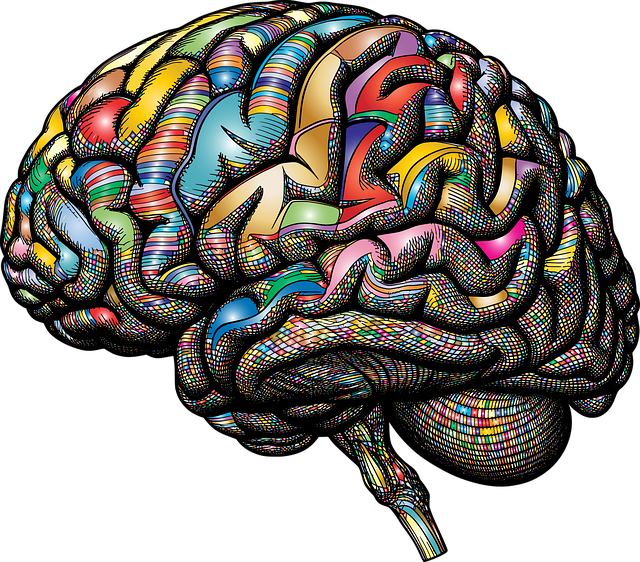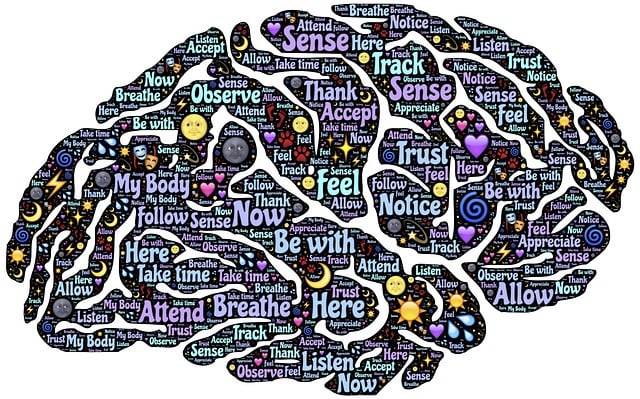Englewood Neuro Disorders Therapy tackles the significant obstacle of mental illness stigma through comprehensive initiatives. By educating communities, integrating evidence-based practices like Mindfulness Meditation, and fostering open dialogue, we aim to create a supportive environment where individuals feel empowered to seek therapy without fear of judgment. Our goal is to improve access to treatment and enhance mental health outcomes, normalizing conversations about mental health and promoting understanding of neurodiversity. Supportive communities, facilitated by organizations like ours, break down barriers to help-seeking and catalyze positive change for those facing mental illness.
Mental illness stigma remains a significant barrier to seeking help, with vast consequences for individuals and communities. This article delves into the multifaceted efforts aimed at reducing this pervasive societal issue. We explore the profound impact of stigma on mental health, emphasize the power of education in fostering understanding, offer effective communication strategies for advocates, and highlight the transformative role of supportive communities. By examining these key areas, we aim to equip readers with insights from Englewood Neuro Disorders Therapy to contribute to a more inclusive and compassionate society.
- Understanding Stigma and its Impact on Mental Health
- The Role of Education in Reducing Stigma
- Effective Communication Strategies for Advocate Change
- Supportive Communities and Their Influence on Recovery
Understanding Stigma and its Impact on Mental Health

Stigma surrounding mental illness is a significant barrier to individuals seeking help and support for their well-being. It often manifests as negative attitudes, stereotypes, and beliefs that contribute to discrimination and social isolation. This perception can have severe consequences on an individual’s life, hindering their ability to function in daily activities and fostering a sense of shame and embarrassment. Many struggle in silence, afraid to disclose their struggles for fear of judgment or loss of opportunities.
Englewood Neuro Disorders Therapy recognizes the profound impact of stigma and works tirelessly to combat it through various initiatives. Our approach includes designing mental health education programs that raise awareness, foster empathy, and promote understanding. Additionally, we offer confidence-boosting strategies and social skills training to help individuals navigate challenging situations with resilience. By reducing stigma, we aim to create a supportive environment where people feel empowered to seek therapy, thereby improving access to treatment and enhancing overall mental health outcomes.
The Role of Education in Reducing Stigma

Education plays a pivotal role in dispeling the myths and misconceptions surrounding mental illness, which is a crucial step toward stigma reduction. By integrating evidence-based information into curricula, schools can equip students with a deeper understanding of neurodiversity, including conditions like those managed by Englewood Neuro Disorders Therapy. This early exposure normalizes conversations about mental health, fostering an environment where individuals feel more comfortable seeking support when needed.
Professional development programs, such as Risk Management Planning for Mental Health Professionals and training in Cultural Sensitivity in Mental Healthcare Practice, are essential tools within this educational framework. They empower healthcare providers with the skills to offer compassionate, effective care that respects individual differences, thereby further mitigating stigma. Through ongoing learning and dialogue, communities can cultivate a more inclusive atmosphere where mental health is viewed as an integral part of overall well-being.
Effective Communication Strategies for Advocate Change

Effective communication is a powerful tool in the fight against mental illness stigma. Advocating for change requires clear and empathetic messaging that can reach diverse audiences. One key strategy involves sharing personal stories, especially from individuals who have successfully navigated mental health challenges. At Englewood Neuro Disorders Therapy, we emphasize open dialogue where clients feel safe to express their experiences without fear of judgment. This approach not only humanizes mental illness but also fosters understanding and empathy among the general public.
Additionally, integrating evidence-based practices like Mindfulness Meditation into conversations can help dispel myths and showcase practical tools for managing mental health. By combining personal narratives with scientific insights, advocates can educate others on topics such as Anxiety Relief and Depression Prevention, ultimately contributing to a more informed and supportive society. This dual approach—personal connection and factual information—is crucial in reducing stigma and promoting mental wellness for all.
Supportive Communities and Their Influence on Recovery

Supportive communities play a pivotal role in reducing the stigma surrounding mental illness and fostering recovery. These communities provide a safe space where individuals struggling with neurodisorders like those seen at Englewood Neuro Disorders Therapy can connect, share their experiences, and offer mutual support. The sense of belonging fostered within these groups encourages open communication, breaking down barriers often associated with seeking help for mental health issues. Members learn effective communication strategies to express their needs and feelings, enhancing their ability to navigate social interactions and seek appropriate support.
Moreover, supportive communities promote self-awareness exercises that enable individuals to understand their thoughts, emotions, and behaviors better. This increased introspection contributes to improved mental wellness and resilience. By sharing stories of personal challenges and triumphs, members gain insights into coping mechanisms that work for others, providing them with valuable tools to manage their conditions effectively. These communities serve as powerful catalysts for change, transforming the lives of those affected by mental illness by reducing stigma and promoting understanding and support.
Mental illness stigma is a complex issue, but through education, open communication, and supportive communities, we can make significant strides towards a more understanding society. By recognizing the impact of stigma and implementing evidence-based strategies like those advocated by Englewood Neuro Disorders Therapy, we can foster an environment that promotes recovery and reduces discrimination. Together, these efforts have the potential to transform lives and create a more inclusive, compassionate world for individuals facing mental health challenges.














